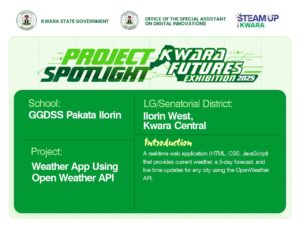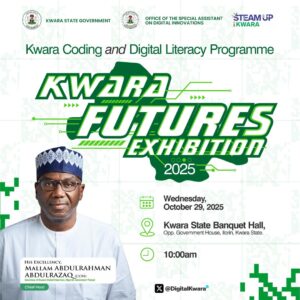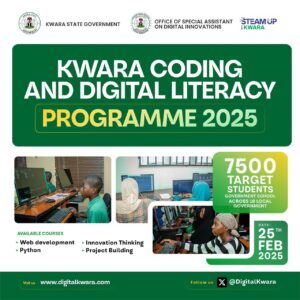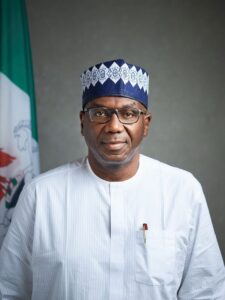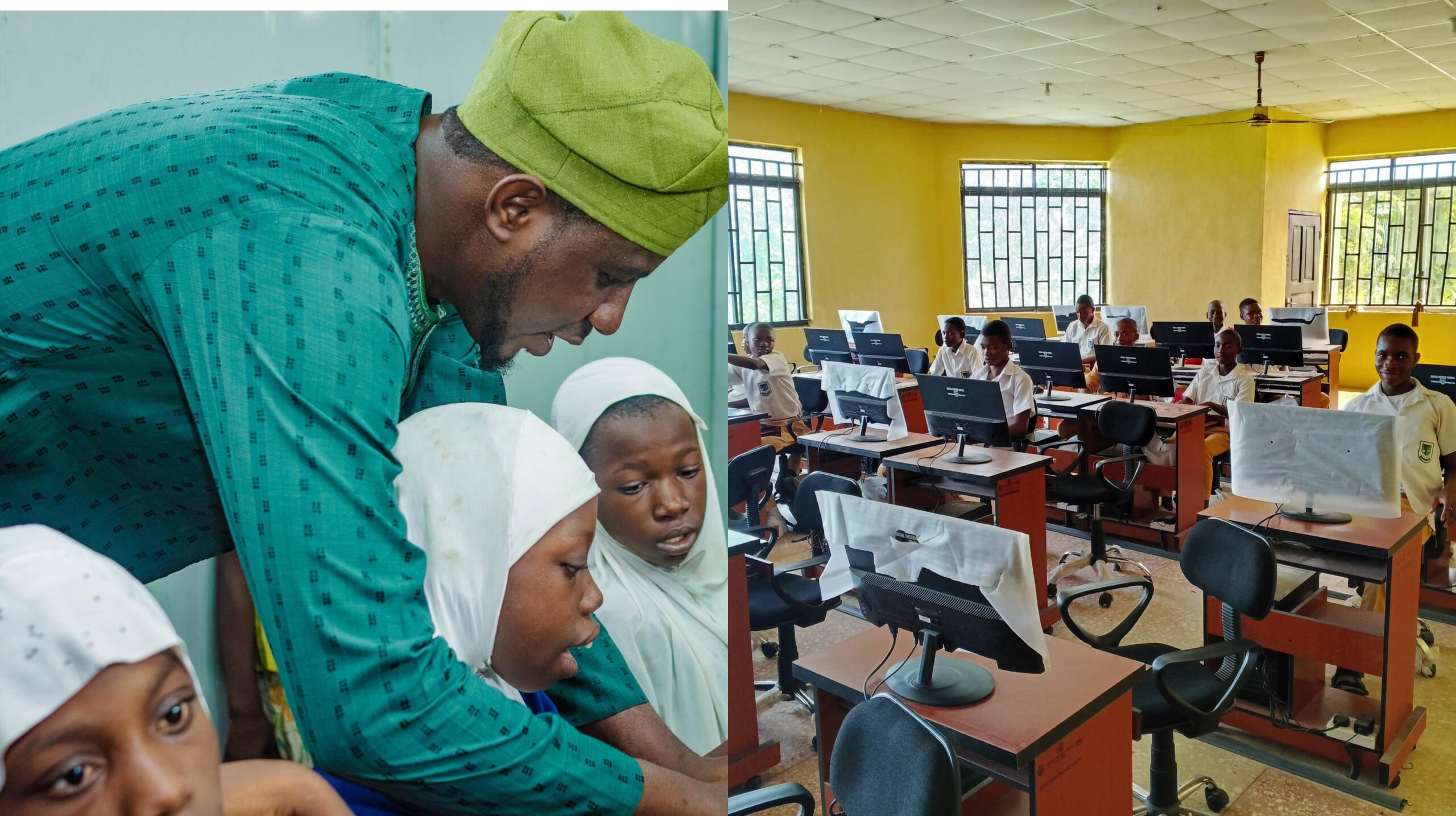
The Kwara State Government has reaffirmed its position as a national leader in digital education with the expansion of the Kwara Coding and Digital Literacy Program, the largest state-led digital education initiative in Nigeria.
According to the Special Assistant to the Governor on Digital Innovation, Mr. Kayode Ishola, the program, which was first piloted in 2024 with 684 students across six public secondary schools, has now scaled up to cover 7,500 students in 50 schools across the state. This expansion underscores the administration’s firm commitment to democratizing access to digital skills and preparing the next generation for the demands of a tech-driven world.
“The Kwara Coding and Digital Literacy Program is not just a project; it’s a transformative journey that is equipping our young people with future-ready skills,” Ishola said. “We are proud that Kwara State is blazing the trail among sub-national governments in this area, and our ambition is to become the regional hub for digital innovation and opportunities.”
The program, implemented in collaboration with private sector partners and technology education providers, offers training in computer programming, digital literacy, robotics, artificial intelligence, and basic data science. Students are introduced to coding languages such as Python and Scratch, as well as internet safety and creative computing.
In addition to in-class teaching, the program features hands-on bootcamps, digital innovation contests, and mentorship opportunities with tech professionals from Nigeria and abroad. Teachers involved in the program are also trained to ensure they can effectively deliver content and inspire their students.
The initiative aligns with Governor AbdulRahman AbdulRazaq’s strategic focus on innovation and human capital development. As the current Chairman of the Nigeria Governors’ Forum (NGF), the governor has been a vocal advocate for increased investment in education and youth empowerment, especially through digital skills training.
Stakeholders in the education and technology sectors have commended the initiative as a bold and visionary step. They believe it not only addresses Nigeria’s digital divide but also prepares Kwara’s youth for global competitiveness.
Parents and students have also expressed enthusiasm, noting the program has already sparked interest in technology careers and created a sense of confidence among participants. One student, Halimat Yusuf from Government Girls Day Secondary School Ilorin, said, “Before this program, I never imagined I could write code. Now, I’m building my own game in Scratch.”
With the continued support of the state government and its partners, the program is expected to expand to more schools in coming years, with plans to introduce advanced tracks in web development, artificial intelligence, and digital entrepreneurship.
The Kwara Coding and Digital Literacy Program is a key pillar in the state’s long-term agenda to foster inclusive innovation, job creation, and digital transformation—laying the foundation for a smarter and more prosperous Kwara.
